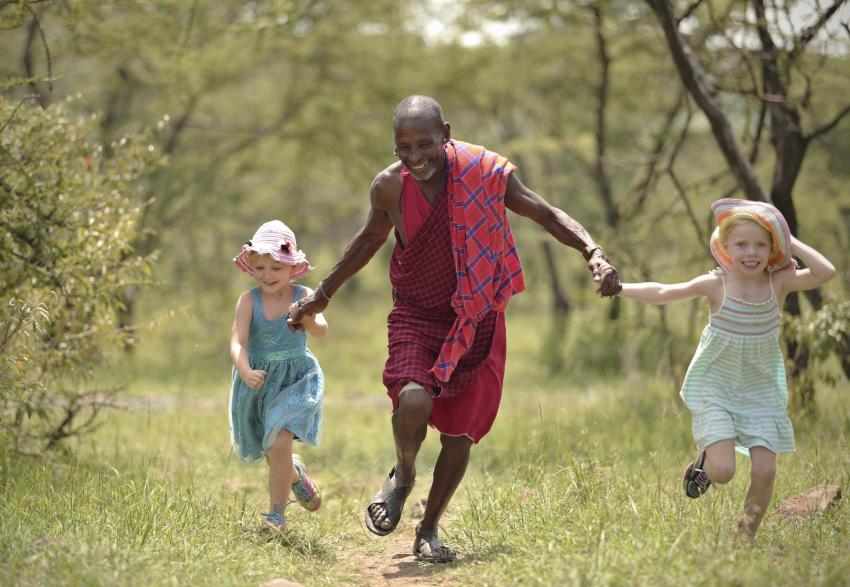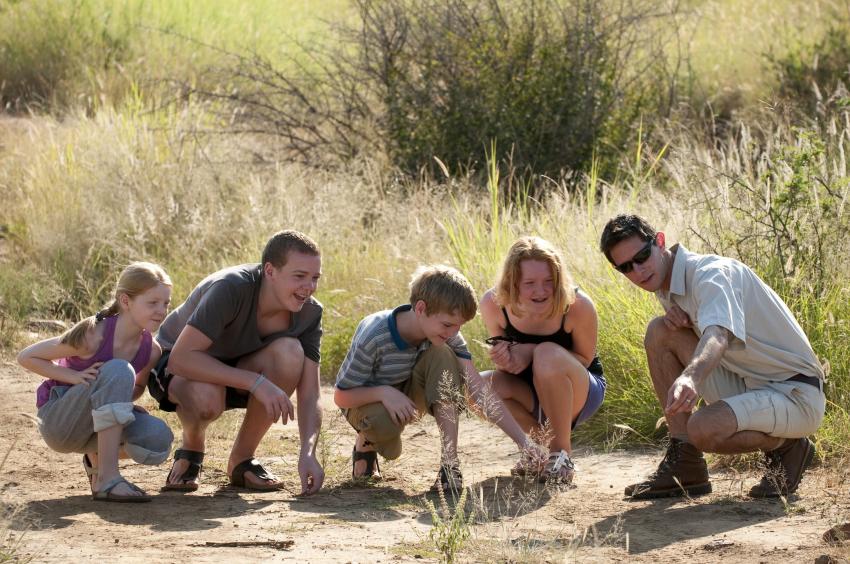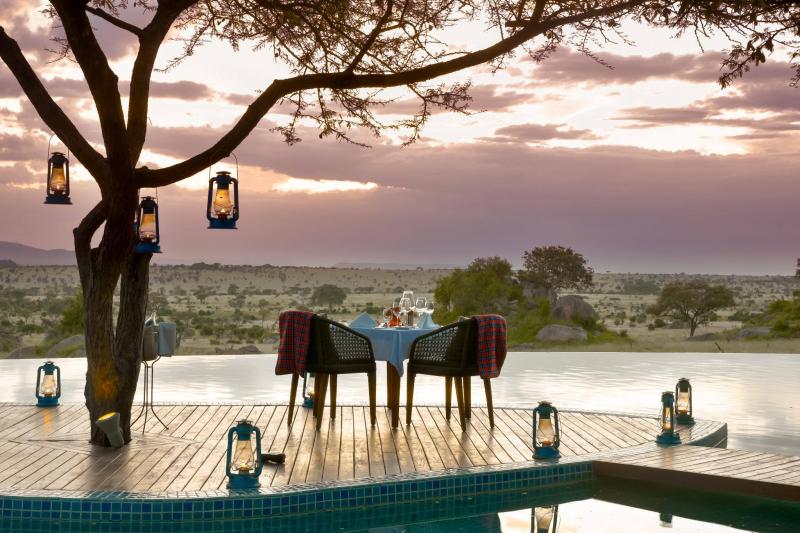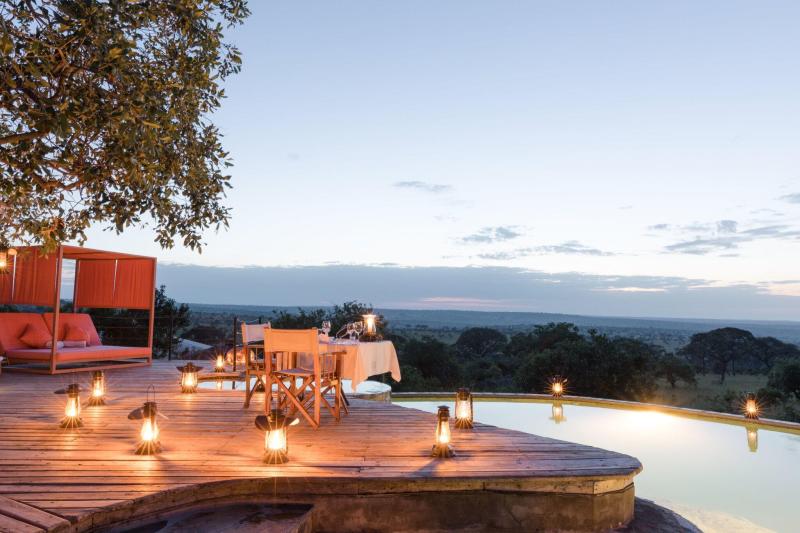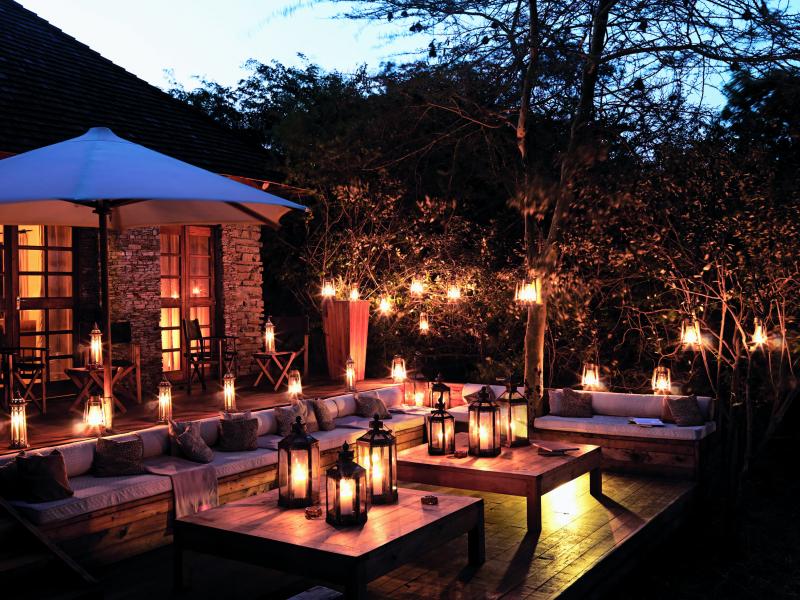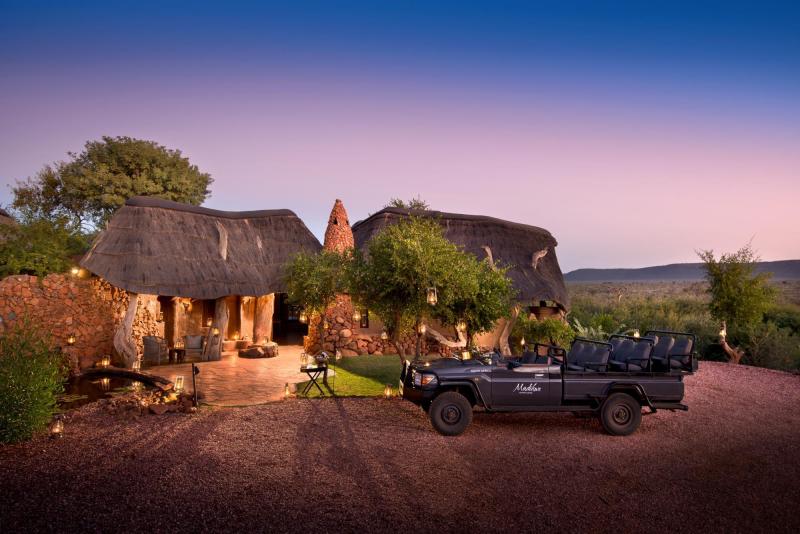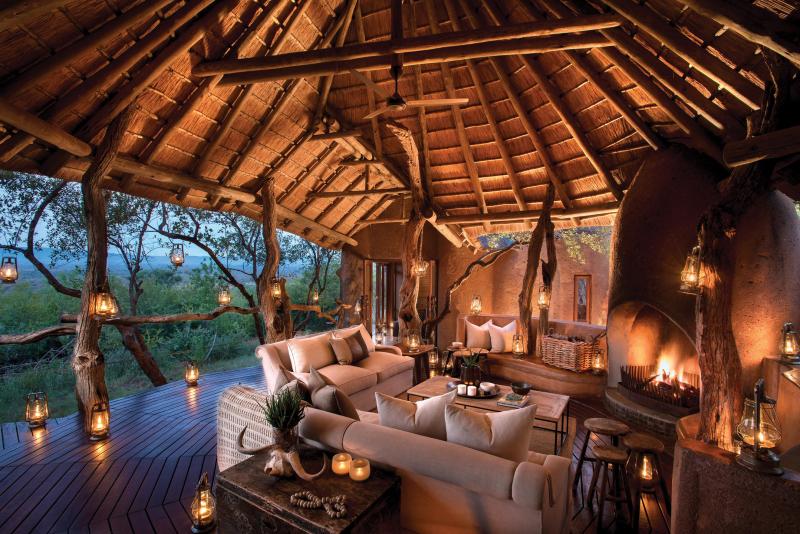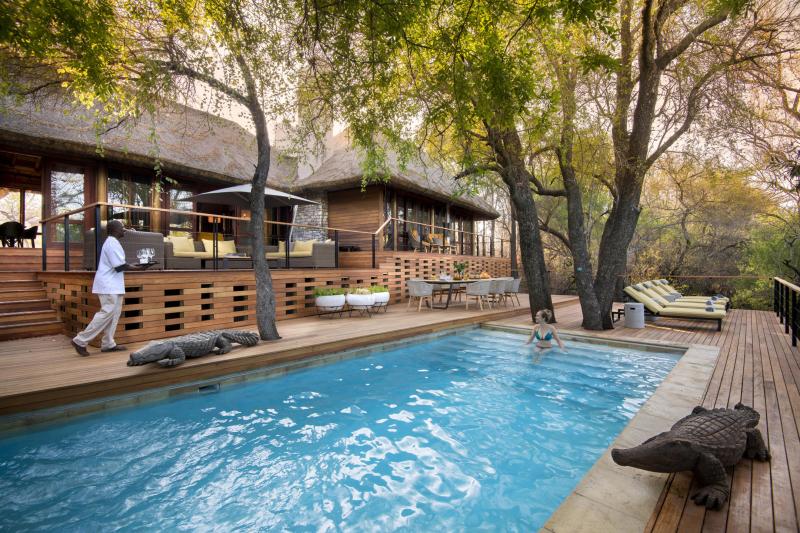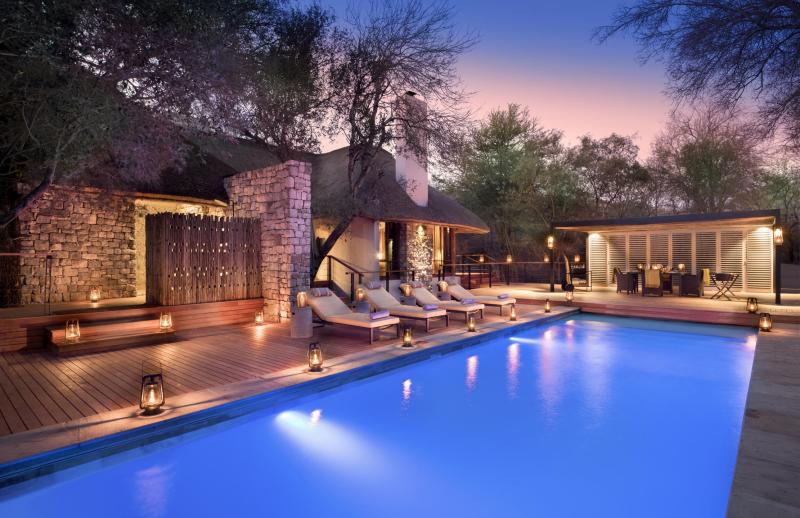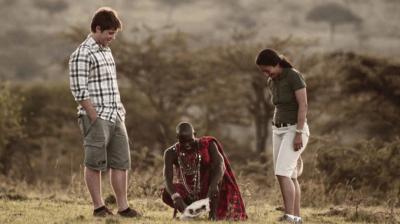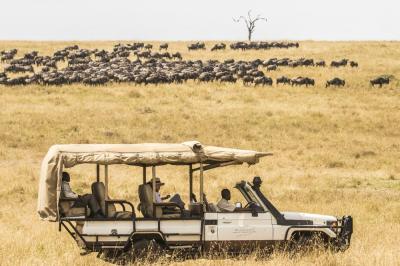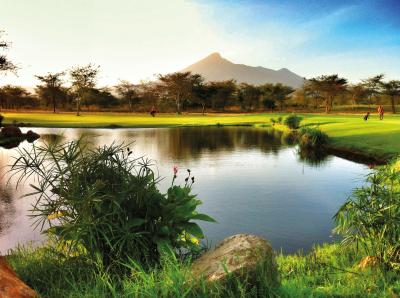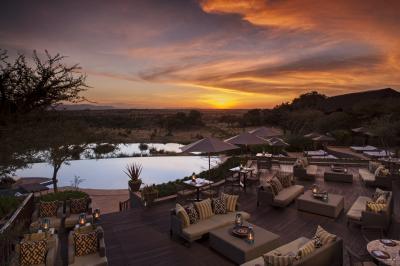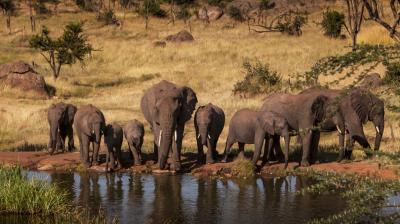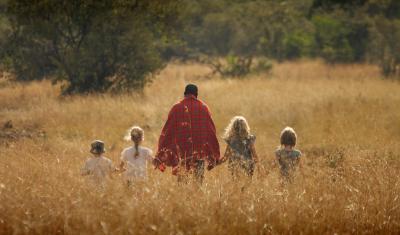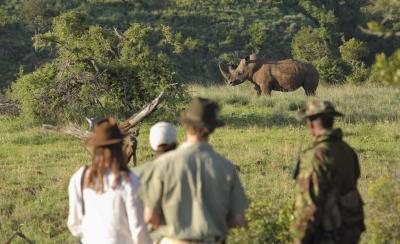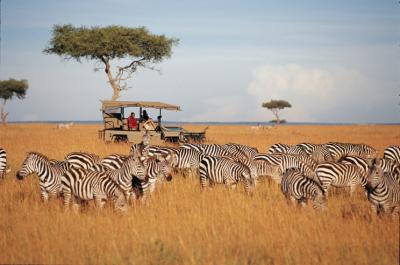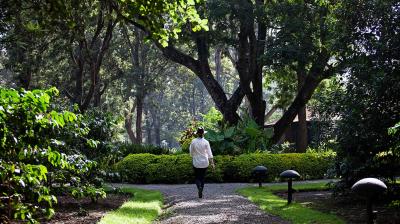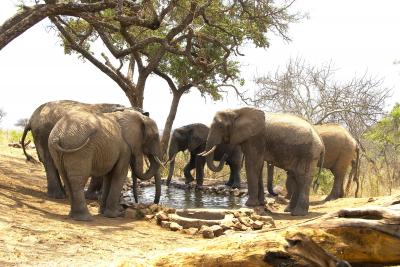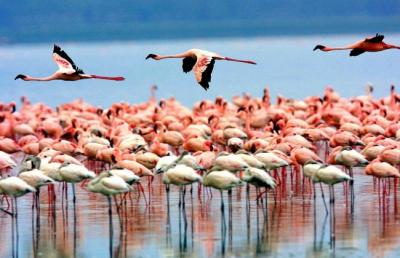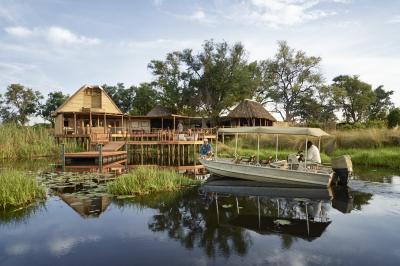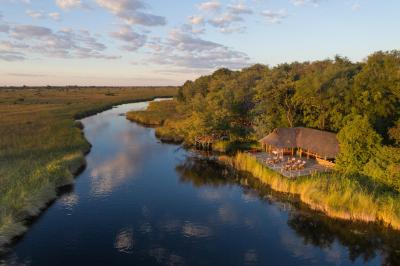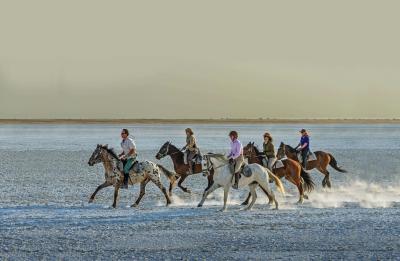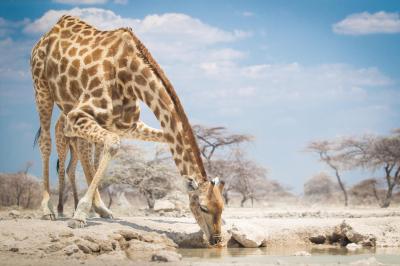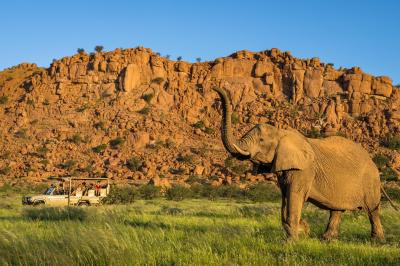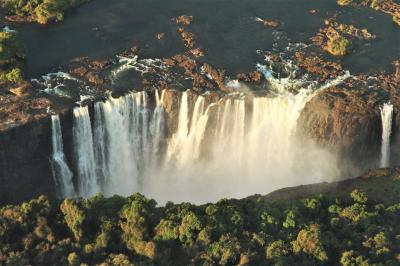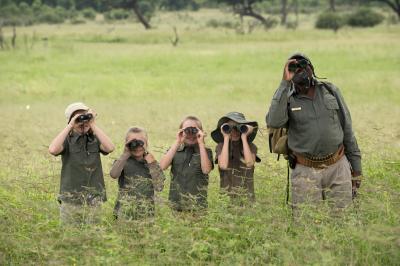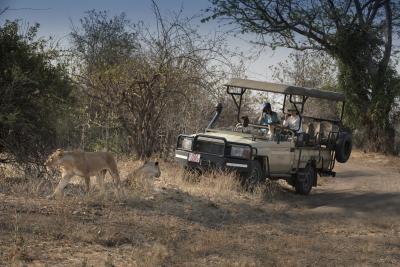Imagine waking to the gentle rustling of leaves as giraffes nibble on treetops and the soft thump of elephant footsteps traipsing through the savanna. Then imagine sharing that experience with the ones you love the most.
On a family safari to Africa, both parents and kids have the chance to witness the raw beauty and power of nature in its most untouched form. Not only will you explore incredible landscapes and come face-to-face with majestic wildlife but you’ll provide an educational experience that goes far beyond any textbook.
In short, an African safari is not just a vacation; it's a transformative journey that may just ignite a lifelong passion for conservation in your children and a profound appreciation for the wonders of our planet.
In this family African safari guide, discover everything you need to know about venturing to the continent on a once-in-a-lifetime adventure with your kids. We’ll share our extensive African planning knowledge and safari tips for families, ensuring your experience is everything you dreamed it would be.
Why choose an African safari for the family
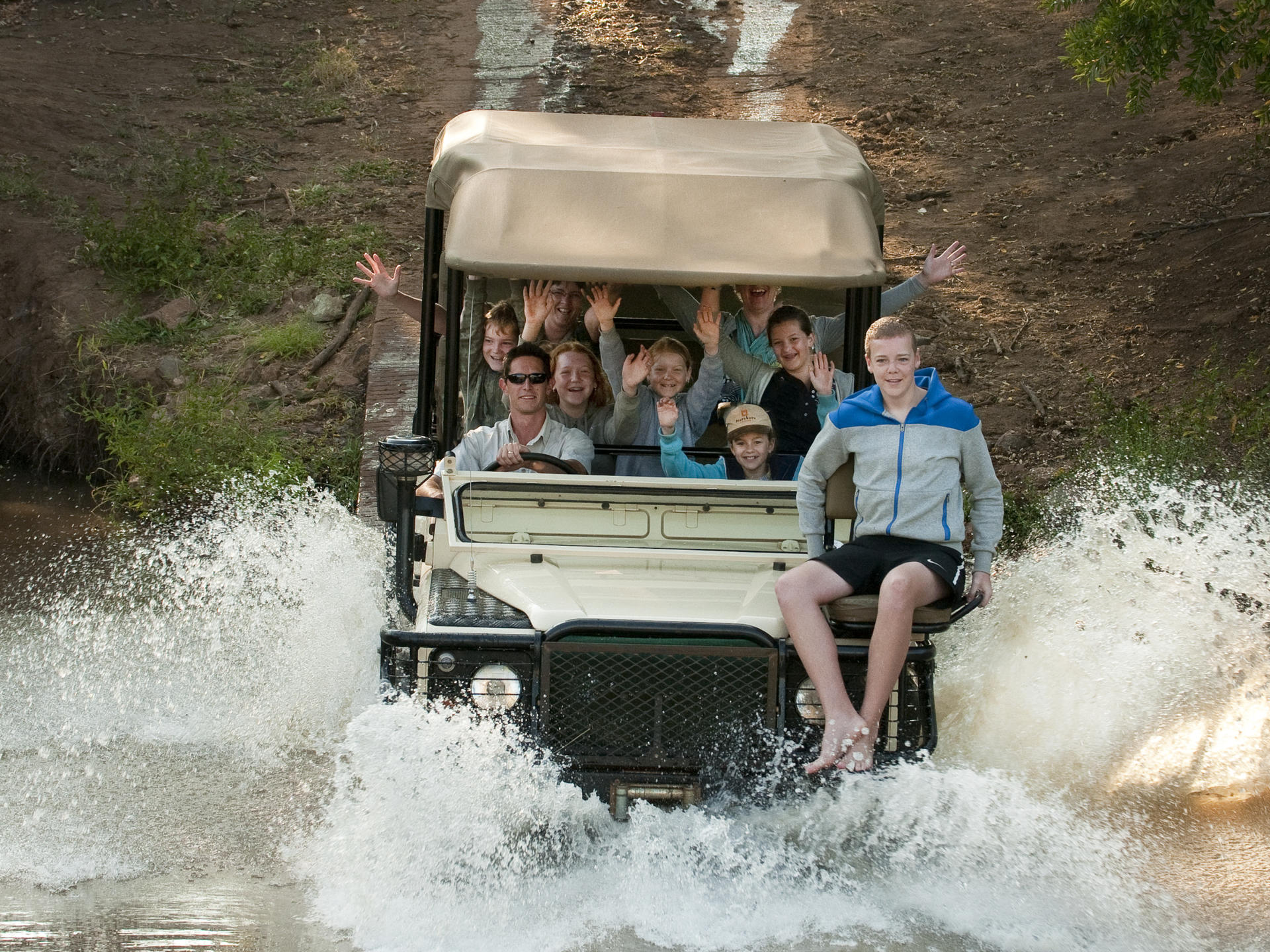 Seeing wild animals in their natural habitat is a profound experience that helps build a deep sense of empathy and connection, especially in children. While zoos play an important role in educating the public about wildlife and conservation, there is something uniquely powerful about observing creatures in the wild.
Seeing wild animals in their natural habitat is a profound experience that helps build a deep sense of empathy and connection, especially in children. While zoos play an important role in educating the public about wildlife and conservation, there is something uniquely powerful about observing creatures in the wild.
Being immersed in an animal's native environment while witnessing their natural behaviours and interactions offers an understanding of their lives that simply can't be replicated in captivity. On an African safari, you and your children will have the opportunity to see elephants lumbering across the savanna, playful meerkat families scampering outside their dens and mighty lions prowling their territory.
These firsthand encounters foster a unique appreciation for wildlife and their unique personalities, as well as the crucial roles they play in the natural world. That personal connection, in turn, helps fuel a passion to protect these creatures and the habitats they depend on. It’s hard to look into the eyes of an elephant and not be changed forever, particularly at such a young and impressionable age.
Aside from planting the seeds for the next generation of conservationists, travelling to Africa with children can be an eye-opening experience in terms of cultural diversity. They will encounter people with different physical appearances, languages, clothing and customs, learning firsthand that there are many ways of living on this Earth.
These cross-cultural interactions can be immensely beneficial, building empathy and open-mindedness at a young age. Connecting with people from vastly different backgrounds fosters tolerance, respect and global citizenship while counteracting prejudice before it can take root. As adults, we can also gain from this cultural exchange, reaping the same rewards of personal growth and gaining insights from the parenting practices and values of other societies.
7 safari tips for families
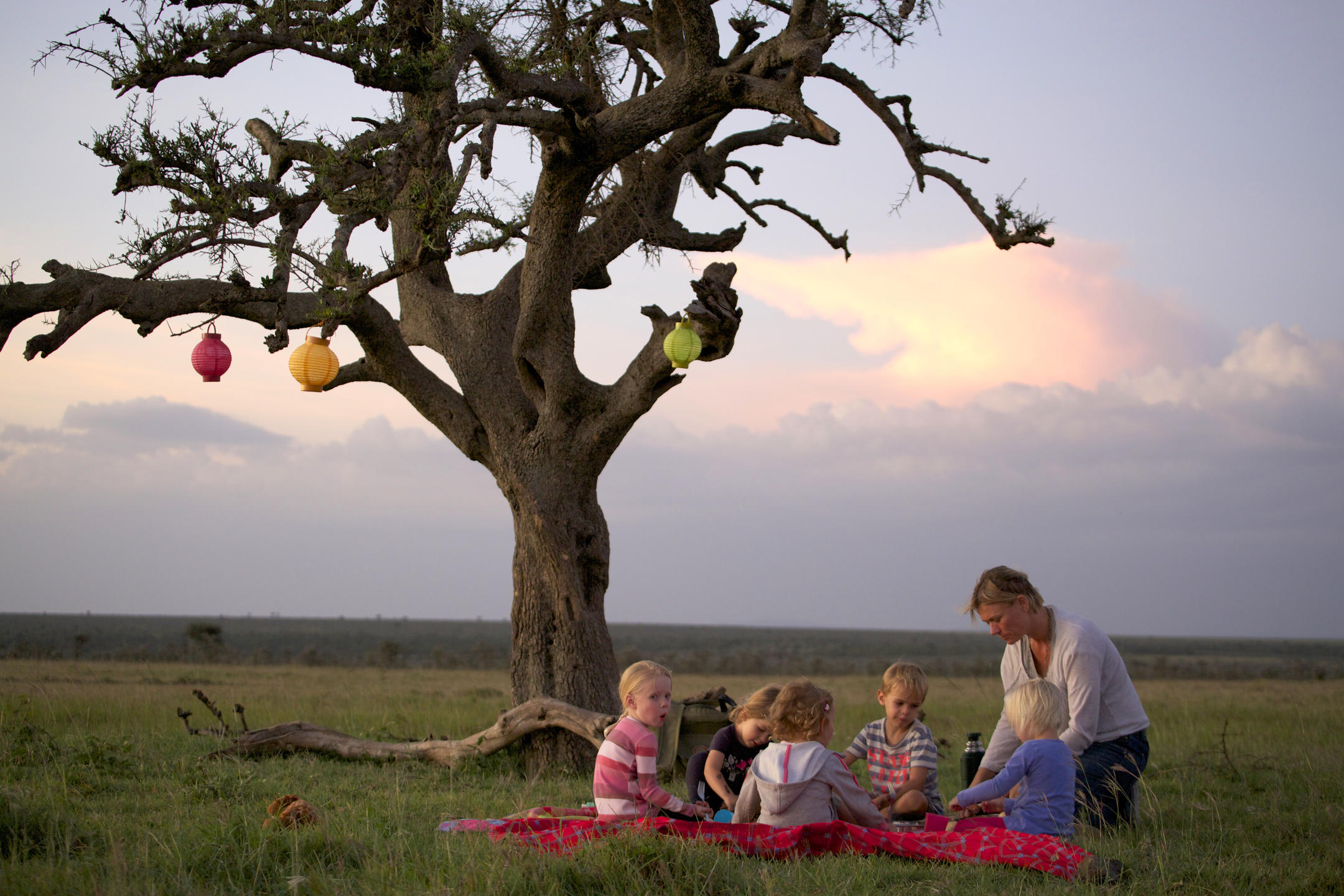
1. Select your African safari destination wisely
When planning a family safari in Africa, it's important to choose a destination that offers a balance of incredible wildlife encounters and engaging activities for kids, all while meeting your family’s needs and interests. There are lots of exceptional safari destinations throughout the continent but not all of them are ideal for those travelling with young ones in tow.
First and foremost, choose a destination that offers easy access to a diverse array of wildlife and is conservation-focused, dedicated to protecting and preserving the ecosystem for future generations. This is important when considering how your tourism dollars are reinvested back into the natural environment, wildlife and local communities.
South Africa’s Eastern Cape and Madikwe Game Reserve are sound choices if you’re looking for malaria-free options, together with Pilanesberg and Addo Elephant National Park. On the Laikipia Plateau (in the shadow of Mount Kenya), you’ll find the Borana Conservancy, which is also considered malaria-free due to its high altitude.
The Maasai Mara National Reserve in Kenya and Serengeti National Park in Tanzania are popular for their Great Migration and “Big Five” experiences, with the option to see lions, leopards, elephants, rhinos and buffalo all in the one trip. Both countries also boast an enviable strip of Indian Ocean coastline, making them perfect for a bush and beach safari that includes a few well-earned days of coastal relaxation.
In Botswana, Chobe National Park is renowned for its easy accessibility (and its huge elephant population) while the Okavango Delta offers unparalleled luxury safari experiences. Aside from having low malaria risk, Namibia’s Etosha National Park is ideal for families wanting a budget-friendly self-drive itinerary and can be combined with visits to the majestic dunes of Sossusvlei and the Namib Desert.
2. Opt for family-friendly camps and lodges
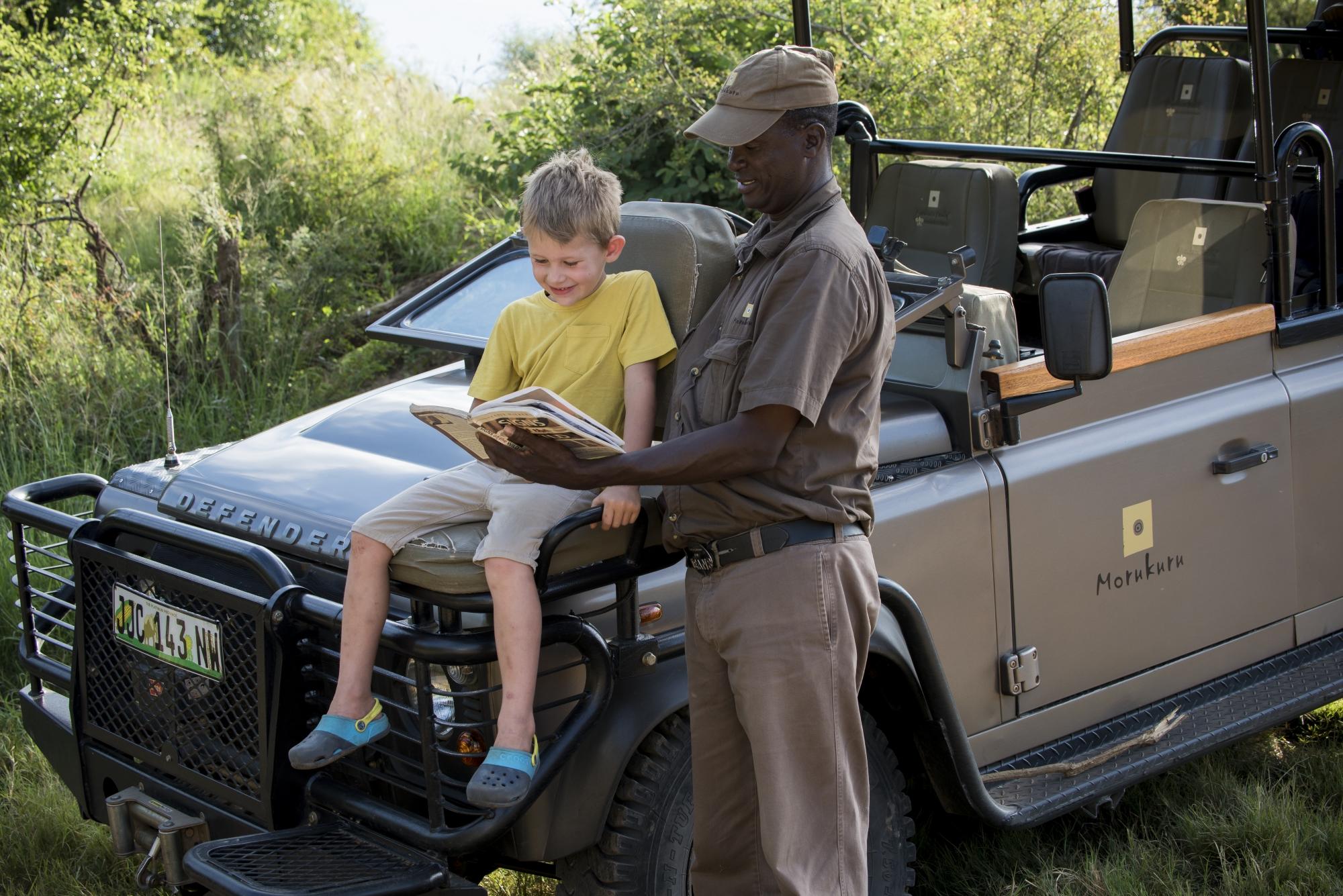 Choosing the right camp or lodge is far more important than picking a specific country or destination. While the incredible landscapes and wildlife are the main draws of a safari adventure to Africa, the accommodation itself can make or break the experience for kids and parents alike.
Choosing the right camp or lodge is far more important than picking a specific country or destination. While the incredible landscapes and wildlife are the main draws of a safari adventure to Africa, the accommodation itself can make or break the experience for kids and parents alike.
The ideal family-friendly safari camp or lodge offers a wealth of engaging activities and amenities tailored to younger guests, ensuring they stay entertained throughout the trip. Swimming pools provide the perfect respite from the midday heat after a morning game drive while well-equipped playrooms stocked with games, toys and books will keep little ones occupied during downtime.
When it comes to activities, look for camps that offer guided nature walks, tracking lessons and educational programs led by knowledgeable staff, offering hands-on learning opportunities that will leave a lasting impression. Visits to local communities add a meaningful opportunity for cultural exchange, not only exposing to children to the way other people live but also helping to forge new friendships.
Perhaps most importantly is selecting a camp or lodge with warm and attentive staff who genuinely enjoy interacting with children. This will help to put your mind at ease, allowing you to relax and fully immerse yourself in the safari experience, secure in the knowledge that your kids are in capable, caring hands.
3. Invest in private game drive experiences
When it comes to family safaris, opting for a privately guided experience can’t be overstated. Not only will you have the undivided attention of a personal guide but you won’t be kept to the rigid schedule dictated by other guests, as is the case with standard group safaris.
A private safari vehicle and guide allows for maximum flexibility and the ability to tailor your safari activities to your family's preferences. This means you can spend as much or as little time wildlife viewing as the kids can handle, take breaks when needed and move at your own pace, without having to coordinate with the needs or desires of others.
At the best lodges and camps, you’ll find highly qualified guides who are adept at engaging with kids and teaching them everything they know about the African bush. Many families report that the immersive, educational activities provided by their personal guides end up being the highlight of the trip, with spotting wildlife coming in a close second.
Private guides have the freedom to start the day a bit later, take breaks as needed and adjust the tempo and activities based on the kids' moods and attention levels. Talented guides can sense when enthusiasm is flagging and can expertly turn it around with a well-timed break, story or change of scenery.
4. Schedule in plenty of flexibility
If you’re planning a family or multi-generational safari, flexibility is key to ensuring an enjoyable and memorable experience for everyone. A rigid itinerary leaves little room for accommodating the diverse preferences and needs that arise when travelling with family members of varying ages. Instead, build some “breathing” room into the schedule, allowing for a more relaxed, well-paced experience.
It can be tempting to hop from place to place every couple of days and cover as much ground as possible. Instead, consider immersing yourself in one or two destinations, which will allow for a more leisurely vacation and the opportunity to form deeper connections to the land, wildlife and people. In doing so, you can embrace the rhythm of safari life without the constant disruption of packing and relocating.
5. Be realistic about budgeting
A family safari to Africa is never going to be a “budget holiday” but it also doesn’t have to break the bank. When planning your once-in-a-lifetime adventure, it’s important to carefully consider the costs involved, be realistic about safari expenses and make smart choices to ensure the trip fits your needs and preferences.
The cost of a safari can vary significantly depending on the type of experience you choose. For a family of four, a guided safari could cost somewhere between $800 and $3,000+ per day, depending on the destination and level of luxury. To stretch your safari budget further, consider travelling during the off-peak or “green” season to score better deals on flights and accommodation.
When African safari planning and budgeting, it's crucial to identify your family's priorities in terms of the level of luxury you desire, which activities you want to include (game drives, guided nature walks, hot air balloon rides and cultural visits) and your preferred travel style. This may be either a guided tour with an experienced safari operator or a more independent self-drive safari.
Once your priorities and budget are figured out, you can start researching available options online or connect with an expert at a reputable safari operator, such as Vencha Travel, to guide you in the right direction.
6. Connect with a family-friendly safari operator
One of the best safari tips for families is to connect with a safari operator who has extensive experience guiding families and can coordinate value-driven packages that aren’t available online. Not only will this ensure a memorable trip for all ages within your available budget but it will take the hard work out of planning.
Look for safari companies that are well established and with a high rating from previous travellers. Read through online reviews and search for those from other families who can verify that the experience offered by the company was tailored to their needs, paying close attention to the ages of the children (if this information is provided).
A family-friendly safari operator will offer flexible itineraries that can be customised to your family's specific needs and pace, as well as your particular interests. Accommodations provided should cater to children, with family-friendly room configurations, kid-oriented menus and perhaps even dedicated play areas and shallow swimming pools for the little ones.
Safari operators who are experienced working with families will understand the need for kid-friendly activities like nature walks, animal tracking and arts and crafts, as well as cultural experiences to educate children. They will also know the importance of finding lodges with trained nannies who can look after young guests while parents enjoy some alone time.
Aside from diving deep into reviews from families, don’t be afraid to directly ask companies for details on their experience with planning safaris for kids. If their answers don’t sound informed or their approach doesn’t align with your expectations, it’s time to move on.
Chatting with a safari operator can provide expert guidance when it comes to navigating the options that are available within your preferred budget. Not only will they be able to provide budget-friendly packages to your destination(s) of choice but they may also open your eyes to alternative (and more suitable) options that you hadn’t even considered.
7. Book early
As they say, the early bird gets the worm! Ideally, you should aim to make your African safari reservation 6 to 12 months ahead of your desired travel dates, particularly if you’re travelling during the peak season from June to October. This early planning allows you to have your pick of the best lodges, camps and tours that fit your family’s preferences and budget.
Popular destinations and limited family accommodations can fill up quickly, so booking early is key to avoiding disappointment. It also gives you ample time to research and compare different options, read reviews and consult with an experienced safari operator, as well as save for the adventure that lies ahead. Additionally, booking in advance can come with additional perks such as early bird discounts, complimentary upgrades or value-added inclusions.
Practical tips for family travel to Africa
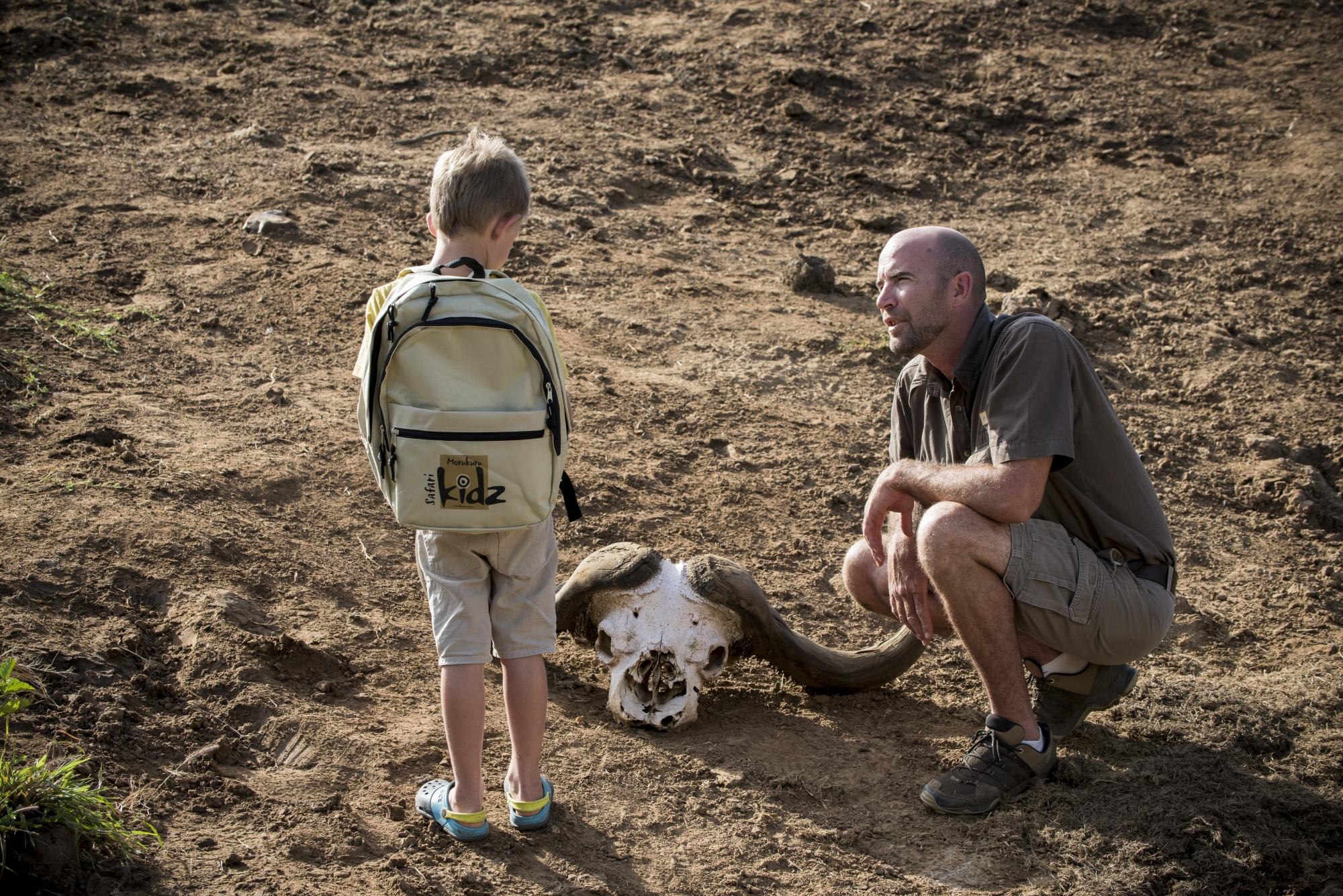
Packing for a family safari in Africa
If you’re heading to Africa on safari, it's important to pack the right clothing to ensure you and your kids are comfortable and protected throughout your trip. Opt for lightweight, breathable fabrics in neutral colours such as khaki, beige and olive green, which blend well with the natural surroundings and help keep you cool under the African sun.
Long-sleeved shirts and pants are crucial for shielding your skin from both the sun’s rays and insects that may be encountered during game drives or nature walks. Additionally, pack a wide-brimmed hat that will protect your face and neck. Sturdy, comfortable walking shoes or hiking boots are also a “must” for nature walks.
In addition to clothing, be sure to pack essential toiletries, a high-SPF sunscreen and a reliable insect repellent to ward off mosquitoes and other biting insects. A well-stocked first-aid kit and any personal medications should also be included to ensure your family's well-being throughout the trip.
To fully immerse yourself in the safari experience, bring along a pair of binoculars for spotting distant wildlife, a camera to capture unforgettable moments and swimwear for taking dips in the lodge pool or nearby watering holes during midday breaks.
Africa family travel essentials (can be turned into infographic or bullet-point box)
- Lightweight and breathable long-sleeve shirts and pants
- Wide-brimmed hat
- Swimsuit
- Raincoat or waterproof jacket
- Sunglasses
- Sturdy walking shoes or hiking boots
- Sunscreen
- Insect repellent
- Basic toiletries
- First-aid kit and medications
- Reusable water bottle
- Binoculars
- Camera
- Snacks and treats for kids
- Books or games
Health considerations for family travel to Africa
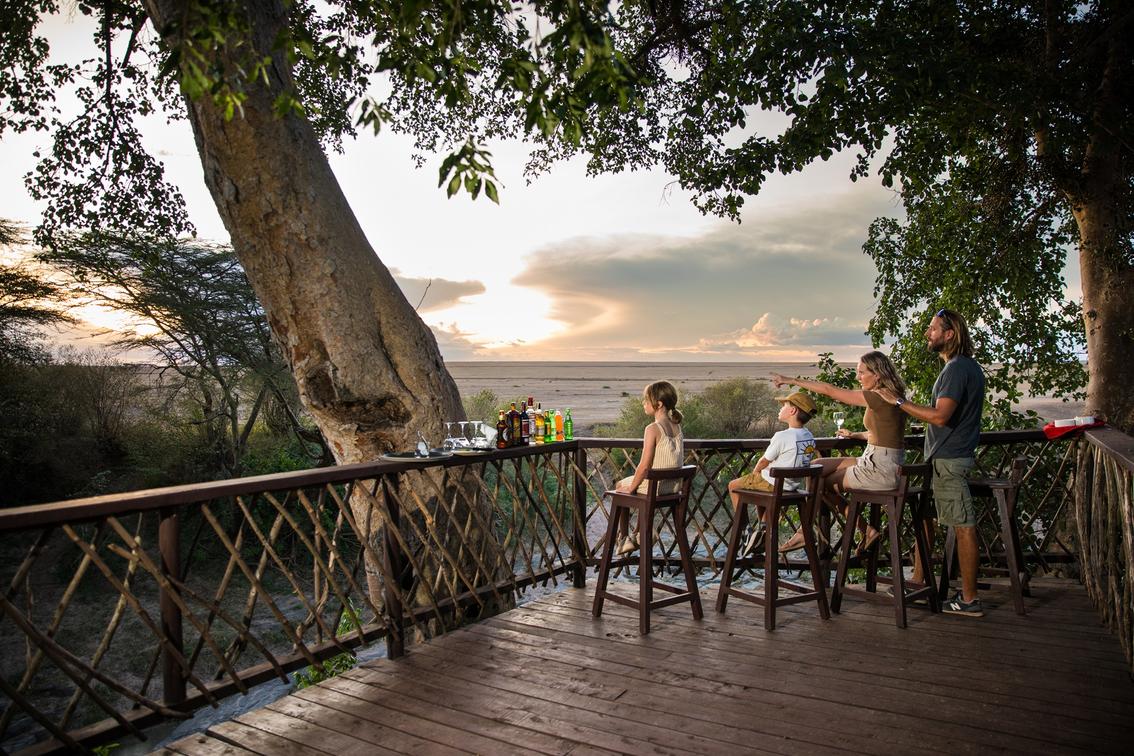
Vaccinations and malaria prevention
Before embarking on any safari adventure, it's important to prioritise the health of your family and visit a healthcare practitioner well before your travel date. Your doctor or physician will be able to provide up-to-date advice that is specific to your destination and your family’s individual needs.
During the consultation, discuss the recommended vaccinations for your specific destination, which commonly include yellow fever, typhoid and both hepatitis A and B. These preventative measures will help safeguard you against potentially serious illnesses that may be prevalent in the regions you'll be exploring.
Additionally, ask your doctor about anti-malarial medication (if you are travelling to a malaria-impacted area), including the options available for your children. While on safari, you can protect yourselves using inspect repellent and cover your bodies as much as possible with loose-fitting clothing. For extra protection, spray insect repellent directly on your clothes. When sleeping, use mosquito bed nets that are in good condition without any tears or holes, and tuck the edges under the mattress for a complete seal.
It's also wise to familiarise yourself with any health advisories or alerts issued for the specific destinations you plan to visit, as this information can help you make informed decisions and take appropriate precautions. Most governments provide travel-related advice on state-run websites, including information on safety issues and health concerns that citizens should be aware of.
Sun protection
Protecting your skin from the sun's harmful UV rays is essential for preventing sunburn and skin cancer, and this can be tackled in multiple ways. Always apply a broad-spectrum sunscreen with an SPF of at least 30 and reapply it every two hours or after swimming. Children’s sunscreens are often more water resistant and contain gentler ingredients.
Wear clothing that covers your skin and has a UPF rating for extra UV protection, together with a wide-brimmed hat that shades your face, ears and neck. UV-blocking sunglasses are also a good investment to protect your eyes and the skin around them and an SPF lip balm can be a lifesaver for preventing your lips from drying out.
During the peak of the sun’s intensity, seek out shady spots under trees, umbrellas or shelters, just as the African wildlife does. Most game drives take place in the early morning and the late afternoon when the animals are at their most active, giving you plenty of opportunity to retreat from the sun during the middle of the day.
Travel insurance
No matter where you are travelling, purchasing comprehensive travel insurance is essential to protect your family’s investment and give you peace of mind. A travel insurance policy will provide critical coverage for a wide range of potential issues that could arise during your African safari, from trip cancellations and interruptions to medical emergencies and evacuations.
To ensure you get the appropriate level of coverage for your specific needs, it's important to thoroughly and honestly answer all questions on the insurance application. If you omitinformation, it could lead to insufficient coverage or even invalidate your policy. You should also carefully check exactly what is and isn’t covered, as well as any excess you will need to pay if you make a claim.
Key considerations for a safari should include trip cancellation and interruption benefits, which will reimburse you for non-refundable trip costs if you need to cancel or cut your journey short due to illness, injury or severe weather. Ample emergency medical coverage is also crucial, as quality healthcare may be limited in remote safari areas.
Additionally, look for a policy that will cover emergency medical evacuation and transportation, in case you or a family member becomes critically ill or injured and needs to be airlifted to a medical facility. Other valuable benefits to consider include coverage for lost, stolen or delayed baggage, travel delays and accidental death and dismemberment.
FAQs
Which safari destinations are best for family travel to Africa?
In choosing the best destination for a family safari adventure, there are a few that stand out from the rest. South Africa is an excellent choice due to its malaria-free reserves like Madikwe and Pilanesberg where the "Big Five" can be spotted.
Kenya's Masai Mara is another iconic safari destination that is popular with families. Its kid-friendly camps provide spacious accommodations and tailored activities designed to engage all ages. Combining accessibility, a diversity of landscapes and plentiful wildlife, Tanzania is another strong contender. After an unforgettable safari experience in the Serengeti and Ngorongoro Crater, families can relax on the idyllic beaches of Zanzibar and snorkel the Indian Ocean waters.
For a more off-the-beaten path adventure, consider Namibia, a land of towering sand dunes and desert-adapted species found nowhere else on Earth. Etosha National Park's game-rich watering holes are perfect for animal viewing while the self-driving possibilities make it a popular choice amongst budget travellers.
What’s the best age to take kids on safari?
There’s no definitive answer in terms of the ideal age for bringing kids on safari and parents should consider several factors before making a decision. That being said, some lodges do have age restrictions, particularly when it comes to game drives in open vehicles, so always check before booking.
Some experts recommended to wait until children are at least 8 years old before embarking on a safari adventure. At this age, kids are typically more mature, have longer attention spans and can better appreciate the wildlife encounters and cultural experiences a safari offers. Younger children may find the long drives, early mornings and safety restrictions more challenging.
That being said, some safari lodges and camps cater specifically to families with younger kids, offering tailored activities and childcare services. They come complete with highly trained nannies who will look after your little ones while you embark on a game drive or enjoy a romantic dinner overlooking the savannah.
Ultimately, parents know their children best and can assess their readiness for a safari based on their individual personalities and interests.
What should I pack for kids on safari?
When packing for kids going on safari, it’s best to prioritise comfort and sun protection, with layering options that can adapt to changing temperatures. Choose lightweight, breathable clothing in neutral colours that will blend in with the environment. Pack long-sleeved shirts and pants to shield skin from the sun and biting insects, particularly if you’re travelling to destinations impacted by malaria.
Include in their suitcase a wide-brimmed hat and plenty of high-SPF sunscreen to guard against the sun’s harmful rays, as well as a waterproof jacket if you’re travelling during the “green” season. Temperatures can drop significantly in the early mornings and evenings, so don’t forget a sweater or light jacket.
Comfortable, closed-toe shoes are a must for walking and hiking, while a pair of sandals is great for relaxing at camp. Additionally, pack any toiletries and medications your kids might need, plus some of their favourite snacks to satisfy mid-game drive hunger cravings. Lastly, consider bringing along some travel games or books to keep kids entertained during downtime.
What accommodation options are available for a family safari?
No matter what your budget, family configuration or preferred level of luxury, there are African safari accommodations to suit. Many safari lodges offer family-friendly rooms or adjoining suites to keep parents and children together, with the options of cots and roll-out beds. If you're seeking a more immersive nature experience, look for tented camps with ensuite facilities that combine comfort with the thrill of sleeping under canvas in the heart of the bush.
For larger families or multigenerational groups, you can find private villas or exclusive-use houses within safari properties that allow access to all of its facilities but with greater living space. Many automatically come with private guides and vehicles (included in the package rates), as well as personal butlers to ensure a seamless stay.
Self-catering options are also available in some reserves for families who prefer flexibility and their own kitchen facilities, although keep in mind that grocery shopping in remote areas is not always easy! It might be less stressful to find a safari lodge or camp with flexible meal times and kid menus - just be sure to notify them in advance of any dietary requirements.
Regardless of your choice, family safari accommodations typically offer child-friendly amenities, including swimming pools where they can splash around during the midday hours. They will also offer kids’ programs and activities that are age-appropriate, plus babysitting services so that everyone can enjoy a memorable and stress-free experience together.
Ready to book your African safari adventure?
Help Me Plan

 1-321-766-6821
1-321-766-6821 
